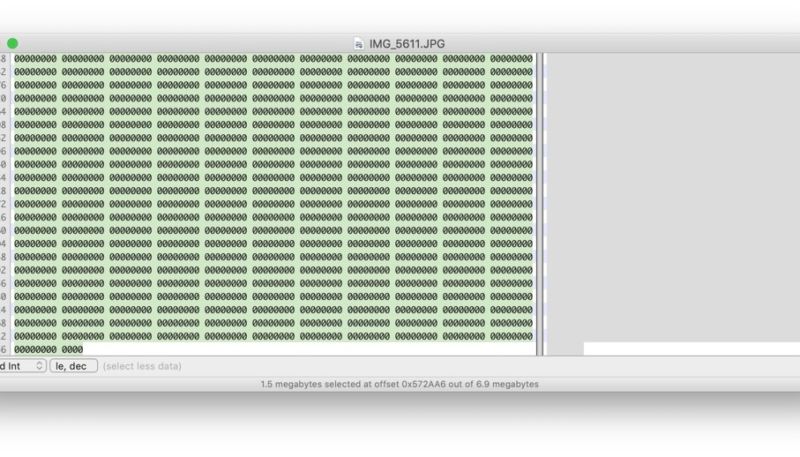Earlier this week it was discovered that a bug in Apple’s macOS Image Capture app can waste potential gigabytes of storage space when transferring photos from an iOS device to a Mac. Today comes news that the bug, present in macOS 10.14.6 and later, Is more extensive than initially thought.
NeoFinder developer Norbert Doerner, who originally discovered the bug, told MacRumors that the issue affects nearly all Mac apps that import images from cameras and iOS devices. Affected apps include Adobe Lightroom, Affinity Photo, PhaseOne Media Pro, and Apple’s legacy iPhoto and Aperture apps.
Doerner says the reason is that the bug is located inside Apple’s ImageCaptureCore framework, which is a part of macOS that developers must use to connect to digital cameras. Ironically, the only app that isn’t affected by the bug is Apple’s own Photos app, which uses different and undocumented APIs to communicate with iOS devices.
The bug pops up when converting HEIF photos taken by iOS to more standard JPG files. Unfortunately, the app also adds 1.5MB of empty data to every single file copied, increasing file size and consuming more storage than it should. Doerner said he discovered more than 12,000 JPG files in his own photo library containing this extra unwanted data, resulting in over 20GB of wasted disk space.
Apple is reportedly aware of the bug and is likely working on a fix. In the short term, users can prevent their iPhone or iPad from saving their photos in the HEIF format by launching the Settings app, and selecting Camera -> Formats and check Most Compatible.
Another short-term solution, especially for users with large existing photo libraries, is to try a new beta version of developer Thorsten Lemke’s Graphic Converter, which includes an option to remove the unwanted empty data from the JPEG files. (That’s a great graphics conversion utility that I personally recommend for any of your graphics conversion needs.)
NeoFinder is also being updated on Monday to include a tool that can find and eliminate the unwanted data in JPG files.


